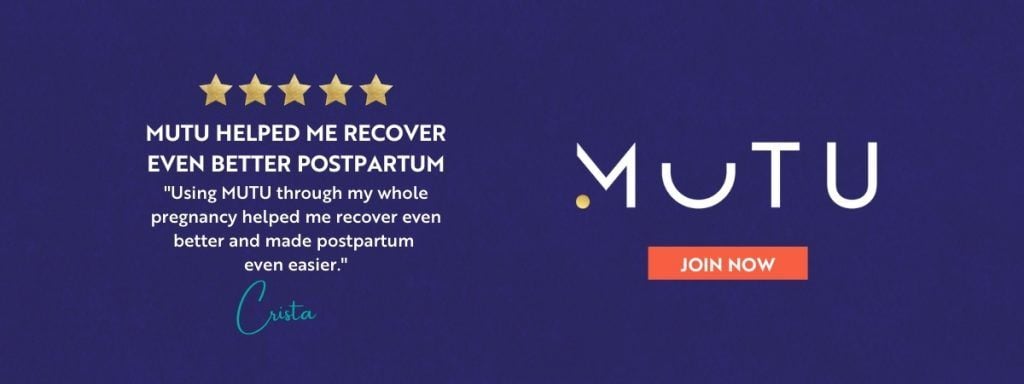If you were a keen exerciser prior to pregnancy, know that your fitness and training goals will shift for the next few months, but you can absolutely keep on working out! Focus on pregnancy safe exercises that help you to feel strong and capable in your changing body and that make you feel healthy and energised.
Your strength or lean muscle mass goals will be more about maintenance than progression. The goal of core and pelvic floor awareness, including activation as well as release, become much more of a focus. You’ll want to gain weight throughout your pregnancy healthily, to rest more and to build or maintain strength without stressing your body.

Your body is changing in the most natural and amazing way. Embracing and accommodating these changes is important as your energy levels, balance and strength will fluctuate. You’re working out to maintain great physical function, fitness and wellbeing, not to progress any ‘performance’ criteria you may have previously been working on..
Choose appropriate pregnancy safe exercises and be ready to modify when necessary. You can exercise as far through your pregnancy as you feel good, comfortable and safe doing so.
Pregnancy safe exercises in the first trimester
In the first trimester you may experience shortness of breath and less stamina. You are likely to feel much more fatigued than before pregnancy, and possibly nauseous. All of these things are normal but will affect your training, energy and goals.
Experienced strength trainers should only do what they were familiar with prior to pregnancy, and are skilled and comfortable performing. No weight progressions and no breath holding.
Beyond the first trimester, any more challenging lifting or strength training risks increased intra-abdominal pressure and excessive downward pressure on the pelvic floor, so scale it down, even if you felt fine in the first trimester..
Second trimester
You’re likely to feel at your pregnant physical best during the second trimester. Nausea will hopefully have subsided and you will feel more energised and less fatigued. So pregnancy safe exercises might start to be more on your mind than they were during the first trimester.
This is the time to modify, progressively lighten the load and concentrate on breathing strategy, pelvic floor and core activation, and technique during pregnancy safe exercises
You will want to use lighter weights now, and your abdominal and pelvic floor muscles are increasingly under strain as pregnancy progresses (due to weight gain, hormonal changes, and the baby’s increasing size). This is normal and healthy and load should be decreased.
Exercising safely in the third trimester
Strength training programs in the third trimester require still further modification due to changes in abdominal musculature, the extra load on the pelvic floor, and the increasing size of your abdomen. Diastasis Recti is often a misunderstood part of pregnancy- get the low down on DR during pregnancy.
Time, energy and comfort will limit your pregnancy safe exercises in this final trimester, so listen to your body and only do what feels good, is comfortable and keeps you entirely symptom and discomfort-free. When modifications do not eliminate symptoms right away, it is time to stop that exercise. You can come back to it following postpartum recovery! Core and pelvic floor connection work, gentle activity, rest and birth preparation are the main focus now.

Guidelines for safe pregnancy exercising
- Exercise comfortably, not intensely. Be aware that you have less oxygen available for exercise. Stop exercising when you feel tired, and don’t exercise to the point of exhaustion.
- Be consistent – exercise regularly – not intermittently. Exercising three days a week is a good routine. Keep your exercise intensity in the mild-to-moderate range, and don’t exercise for more than 30 minutes at a time.
- Drink plenty of water to keep you hydrated and prevent overheating. Water is more essential for you than ever right now. Remember to drink especially before, during and after exercise.
- Keep cool – don’t get overheated. Drink plenty of fluids before and during exercise, wear layers of “breathable” clothing, don’t exercise in hot weather, and don’t use a jacuzzi or sauna.
- Stay comfortable – wear comfortable, cool, and supportive clothing in layers that can be easily removed. Invest in a good sports bra that fits properly and supports your breasts. The right bra will make an incredible difference to your comfort during exercise. Make sure you have comfortable footwear.
- Make sure you use good alignment when exercising (check out the alignment suggestions in Module 2).
- Warm up and cool down slowly and gradually.
- Eat well – be sure you eat enough! Most pregnant women require at least an additional 300 calories a day. If you exercise regularly, you may require more. Use MUTU Food as your guide for healthy eating.
- Keep your balance. Avoid exercises that could cause a loss of balance and avoid activities that require jumping motions or sudden changes in direction. They may strain your joints and injure you – find your balance, and then move.
- Don’t stretch excessively – the hormone relaxin has made all your joints less stable.
- Don’t exercise or lie on your back if you feel at all dizzy or uncomfortable. If you feel out of breath or uncomfortable when on your back, simply roll on to your left side and relax, breathing deeply. Also, avoid prolonged periods of motionless standing.
- Keep aerobic exercise low impact – jogging is safe but should only be done if you jogged before you were pregnant.
- Yoga is fine, provided your teacher is trained in pre and postnatal instruction. Avoid yoga classes in ‘hot’ conditions and those using ‘power’ moves – and avoid the inverted positions or positions that require spending long periods of time on your back. Don’t stretch your muscles past their pre-pregnancy range of motion.
- Avoid some sports altogether. These include activities at high altitudes and those that carry a risk of falling or colliding with somebody or something else, such as horse-riding, climbing, snow and water skiing and scuba diving – use your common sense and don’t take risks!
- Above all, listen to your body, take frequent breaks and only do what feels comfortable!
When NOT To Exercise During Pregnancy / Contra-indications to Pregnancy Exercise!
The above pregnancy exercise advice is intended for women who do not have any additional risk factors. However some medical conditions may lead your midwife or doctor to recommend modifications or abstinence. These conditions are:
- Pregnancy-induced hypertension (high blood pressure)
- Pre-term rupture of membranes
- Premature labour during the prior or current pregnancy or both
- Incompetent cervix (a surgical procedure to close the cervix to keep the foetus intact in utero)
- Persistent second or third-trimester bleeding
- Intrauterine growth retardation
In addition, women with certain other conditions, including chronic hypertension (high blood pressure) or active thyroid, cardiac, vascular or pulmonary disease, should be evaluated carefully in order to determine whether a pregnancy exercise program is appropriate.












